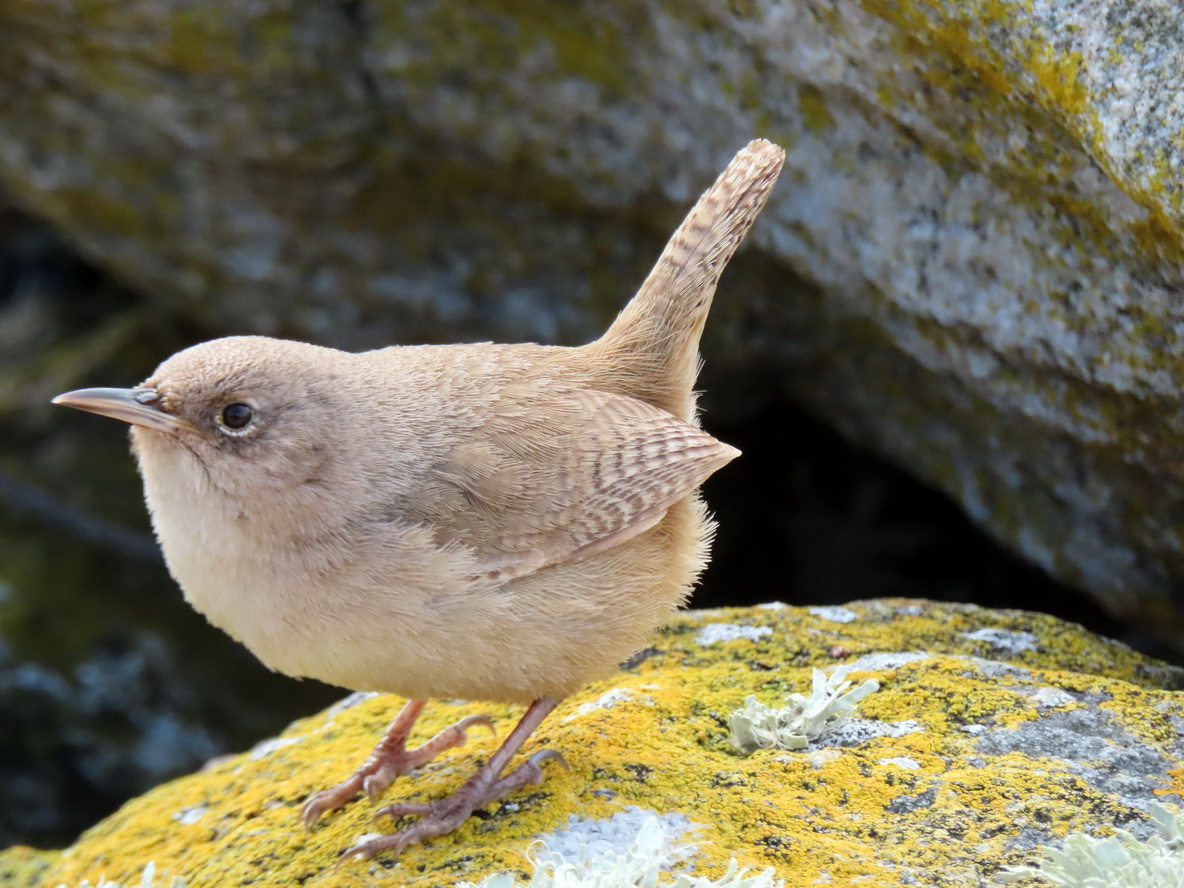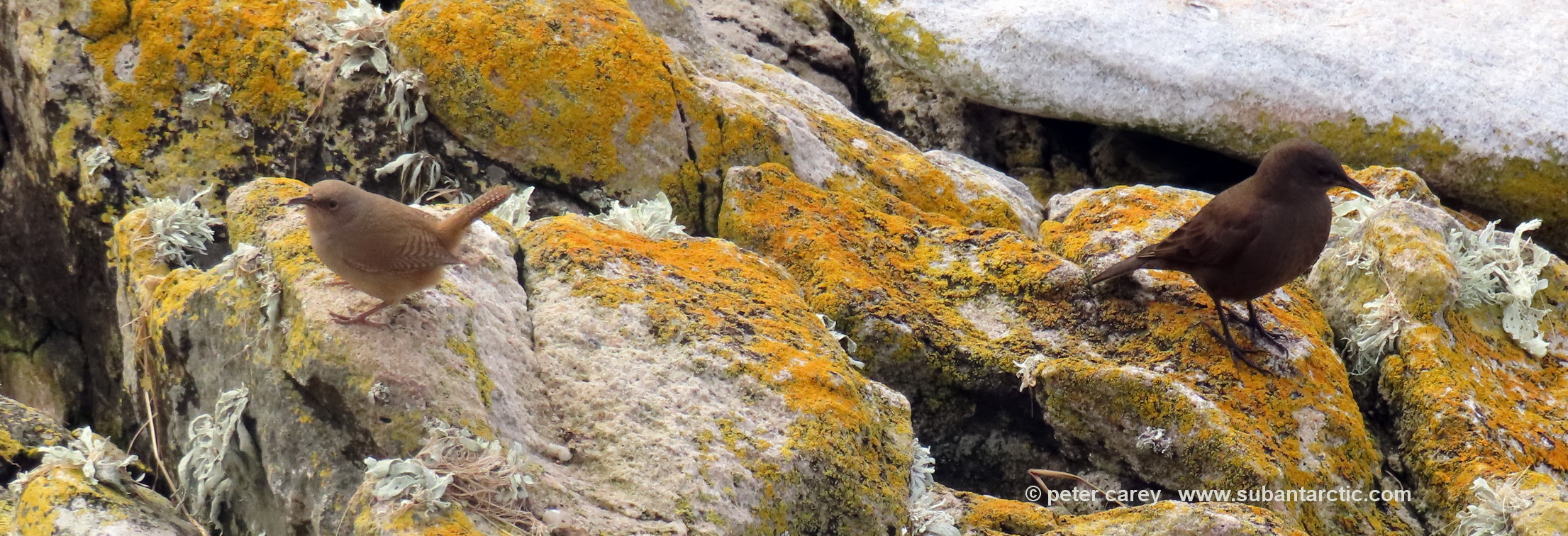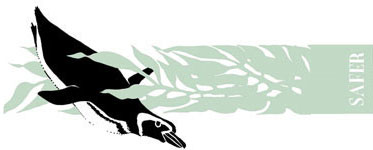Endemic songbirds found on Bense Island

Cobb’s wren (Troglodytes cobbi) is a small songbird found only in the Falkland Islands, where its range is even further restricted to islands that have the right habitat and, crucially, no introduced predators. Bense Island has the right habitat – dense tussock grass that comes right down to a rocky shoreline – but this species has been absent from the island since rats became established in the late 19th and early 20th centuries. But now, Cobb’s wrens are back! Following the eradication of rats, mice, and rabbits from Bense and Little Bense Islands in 2016, the islands are now free of mammalian predators and this suits these special little birds. This month, a pair of wrens were seen together on the northeast coast while individuals were also spotted on other beaches. Depending on how far each bird moves around, we can say there are at least 2 and possibly as many as 6 Cobb’s wrens on the island. It’s too early to say if they are breeding on Bense, but it is very exciting to see they are on the island.
The other endemic songbird in the Falklands, the tussacbird (Cincoldes antarcticus), is also restricted to islands without predators but it has been quicker to come back to Bense. It is now well established and breeding on Bense and Little Bense Islands. In fact, they are now so numerous in the area around the hut that we have to keep the door closed to stop them coming inside.

